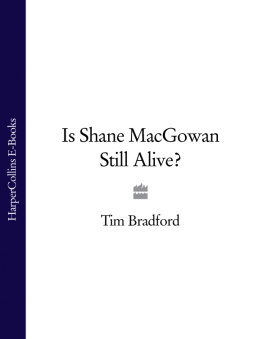I
THE WIDOW HO
One day in the early dawn, a distinguished mandarin was leaving the temple of the City God. It was his duty to visit this temple on the first and fifteenth of the moon, whilst the city was still asleep, to offer incense and adoration to the stern-looking figure enshrined within.
This mandarin was Shih-Kung, and a juster or more upright official did not exist in all the fair provinces of the Empire. Wherever his name was mentioned it was received with the profoundest reverence and respect; for the Chinese people have never lost their ideal of Tien-Li, or Divine Righteousness. This ideal is still deeply embedded in the hearts of high and low, rich and poor; and the homage of all classes, even of the most depraved is gladly offered to any man who conspicuously displays this heavenly virtue.
As Shih-Kung was being carried along in his sedan chair, with his numerous retinue following closely behind him, he happened to notice a young woman walking in the road in front of him, and began to wonder what it was that had brought her out at such an unusually early hour. She was dressed in the very deepest mourning, and so after a little more thought he concluded that she was a widow who was on her way to the grave of her late husband to make the usual offerings to his spirit.
All at once a sudden, furious whirlwind screamed about the woman and seemed determined to spend its force upon her; but beyond her nothing was touched by it. Not a leaf on the trees near by was moved, and not a particle of dust on the road, except just where she stood, was in the least agitated by the fierce tempest that for the moment raged around her.
As Shih-Kung gazed at this strange occurrence, the woman's outer skirt was blown up in the air, and he saw that underneath was another garment of a rich crimson hue. He then knew at once that there was something radically wrong, for no woman of ordinary virtuous character would ever dare to wear such a glaring colour, while she pretended to be in deep mourning. There was something suspicious, too, in the sudden tornado that blew with such terrific violence round the woman only. It was not an accident that brought it there. It was clearly the angry protest of some spirit who had been foully misused, and who was determined that the wrong-doer should not escape the penalty for the evil she had committed.
Calling two of his runners to him, Shih-Kung ordered them to follow the woman and to see where she was going and what she did there, and then to report to him immediately.
[Transcriber's note: pages 3 and 4 missing from source book]
the coffin of the dead, and was to be solved there and there only. His course now seemed easy, and it was with a mind full of relief that he entered his home.
He at once issued a warrant for the arrest of the widow, and at the same time sent officers to bring the coffin that contained the body of her husband from its burying-place.
When the widow appeared before the mandarin, she denied that she knew anything of the cause of her husband's death. He had come home drunk one night, she declared, and had fallen senseless on the ground. After a great deal of difficulty, she had managed to lift him up on to the bed, where he lay in a drunken slumber, just as men under the influence of liquor often do, so that she was not in the least anxious or disturbed about him. During the night she fell asleep as she watched by his side, and when she woke up she found to her horror that he was dead.
"That is all that can be said about the case," she concluded, "and if you now order an examination of the body, it simply means that you have suspicions about me, for no other person was with him but myself when he died. I protest therefore against the body being examined. If, however, you are determined to do so, I warn you that if you find no signs of violence on it, you expose yourself according to the laws of China to the punishment of death."
"I am quite prepared to take the responsibility," replied the mandarin, "and I have already ordered the Coroner to open the coffin and to make a careful examination of the body."
This was accordingly done, but no trace of injury, not even the slightest bruise, could be discovered on any part of the dead man's body.
The county magistrate was greatly distressed at this result of the enquiry, and hastened to Shih-Kung in order to obtain his advice as to what steps he should now take to escape the punishment of death which he had incurred by his action. The Viceroy agreed that the matter had indeed assumed a most serious aspect. "But you need not be anxious," he added, "about what you have done. You have only acted by my orders, and therefore I assume all responsibility for the proceedings which you have adopted to discover the murderer."
Late in the afternoon, as the sun began to disappear behind the mountains of the west, Shih-Kung slipped out by a side door of his yamen, dressed as a peddler of cloth, and with pieces of various kinds of material resting on his shoulders. His disguise was so perfect that no one, as he passed down the street, dreamed of suspecting that instead of being a wandering draper, he was in reality the Governor-General of the Province, who was trying to obtain evidence of a murder that had recently been committed in his own capital.
Travelling on down one street after another, Shih-Kung came at last to the outskirts of the town, where the dwellings were more scattered and the population was less dense. By this time it was growing dark, so when he came to a house that stood quite apart by itself, he knocked at the door. An elderly woman with a pleasant face and a motherly look about her asked him in a kind and gentle voice what he wanted.
"I have taken the liberty," he replied, "of coming to your house to see whether you would not kindly allow me to lodge with you for the night. I am a stranger in this region," he continued, "and have travelled far from my home to sell my cloth. The night is fast falling, and I know not where to spend it, and so I beg of you to take me in. I do not want charity, for I am quite able to pay you liberally for any trouble I may cause you; and to-morrow morning, as early as you may desire, I shall proceed on my wanderings, and you will be relieved of me."
"My good man," she replied, "I am perfectly willing that you should lodge here for the night, only I am afraid you may have to endure some annoyance from the conduct of my son when he returns home later in the evening."
"My business leads me into all kinds of company," he assured her, "and I meet people with a great variety of dispositions, but I generally manage to get on with them all. It may be so with your son."










